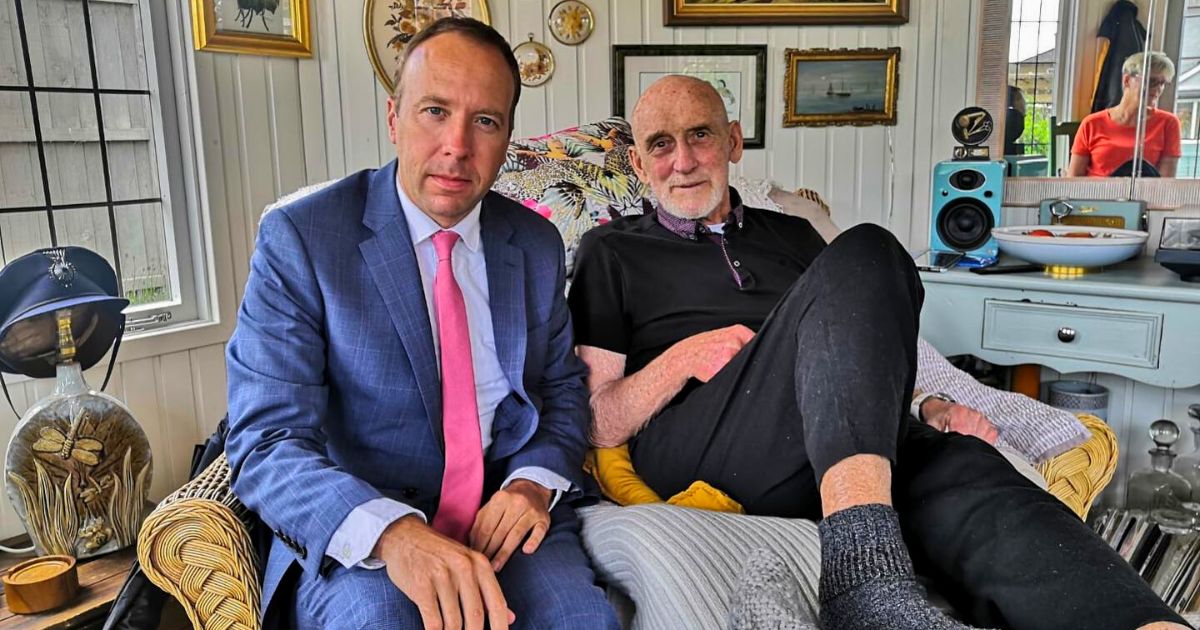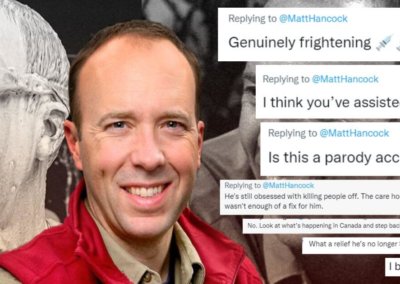The former Health Secretary, Matt Hancock, has come under intense public criticism after announcing his support for introducing assisted suicide in the UK.
Following a meeting with one of his constituents who is suffering from cancer, the MP for West Suffolk and former Health Secretary, Matt Hancock, announced his support for assisted suicide in the UK. Writing in the Express, Mr Hancock said that if he were in a similar position to his constituent, he would want the option to end his life via assisted suicide.
He called for a Public Inquiry into legalising assisted suicide.
However, his announcement was greeted with scorn and mockery on Twitter, with an overwhelmingly negative response from a large number of users on Twitter who responded to the announcement.
A number of users responded to his announcement with reference to what many judge to be Mr Hancock’s poor response during the pandemic. Earlier this year, under the leadership of Mr Hancock, Government policies on discharging untested patients from hospitals to care homes in England at the start of the Covid pandemic were ruled unlawful by the High Court.
In response to Mr Hancock’s call for a Parliamentary inquiry and free vote on assisted suicide, one Twitter user said: “I think you’ve assisted enough”, while another said: “I think you have assisted enough recently”. Others made similar comments referencing his mishandling of the care home scandal: “He’s still obsessed with killing people off. The care home scandal clearly wasn’t enough of a fix for him”, and another commented “What is it with you & trying to bump off elderly?”
Another user made reference to assisted suicide and euthanasia in Canada, suggesting that such legislation is used to put pressure on disabled people to take their own lives to save the health system money.
Also making reference to assisted suicide and euthanasia in Canada, a user said: “If you think the state won’t use [assisted suicide] for it’s own ends, then I don’t know what to tell you”.
Another user responded in disbelief to the announcement asking “Is this a parody account??” and one labelled the announcement as “Genuinely frightening”.
The sick and vulnerable are currently protected against assisted suicide and euthanasia in the UK.
A 2020 British Medical Association (BMA) survey showed that 84% of doctors in palliative medicine would not be willing to perform euthanasia on a patient should the law ever change.
Assisted suicide was most recently debated and rejected in Parliament in 2015 by 330 votes to 118.
A recent Irish study on ageing found that three-quarters of people over 50 who had previously expressed a wish to die no longer had that desire two years later, and that many who do express a wish to die do so for non-medical reasons. The state of Oregon also found 53.1% of patients who chose an assisted suicide were concerned with being a “burden on family, friends/caregivers”, 94.3% of patients were concerned with being “Less able to engage in activities making life enjoyable”, 93.1% were concerned with “losing autonomy”, and 71.8% were concerned with “loss of dignity”. Of the total who have died since 1997, only 27.4% have listed “inadequate pain control, or concern about it” as one of their end-of-life concerns.
Right To Life UK spokesperson, Catherine Robinson, said: “In just about every jurisdiction where assisted suicide and/or euthanasia have been introduced, the law has expanded to include more people and make it easier to end life”.
“Mr Hancock is extremely naive to think it might be otherwise in the UK”.












